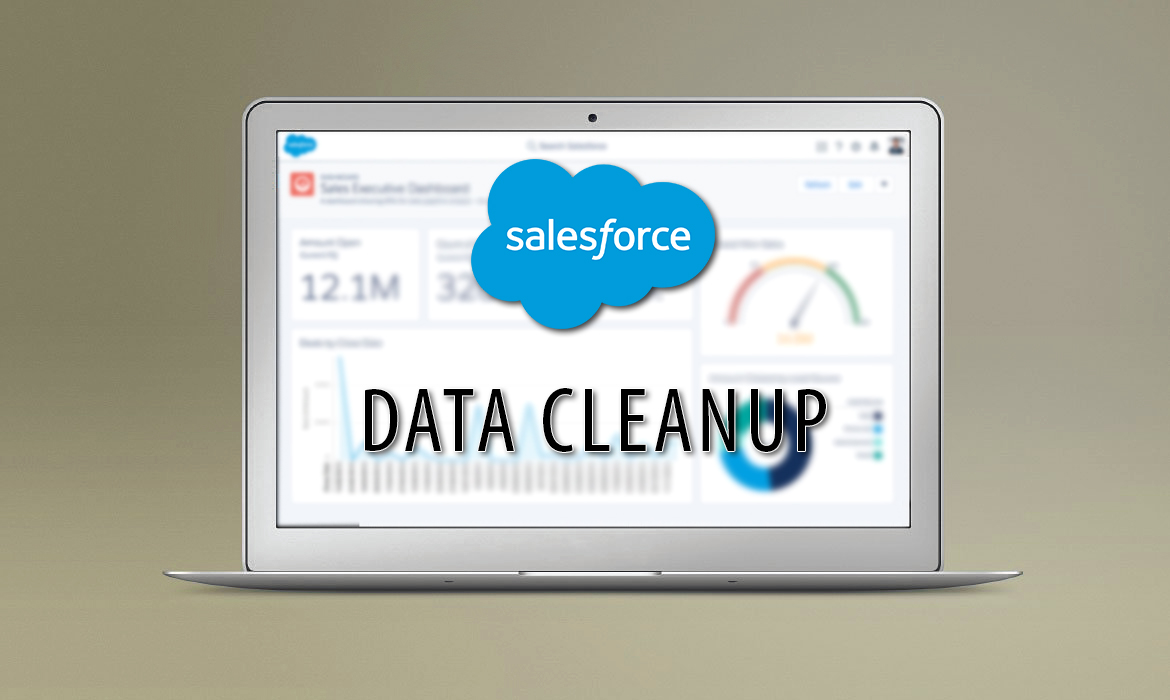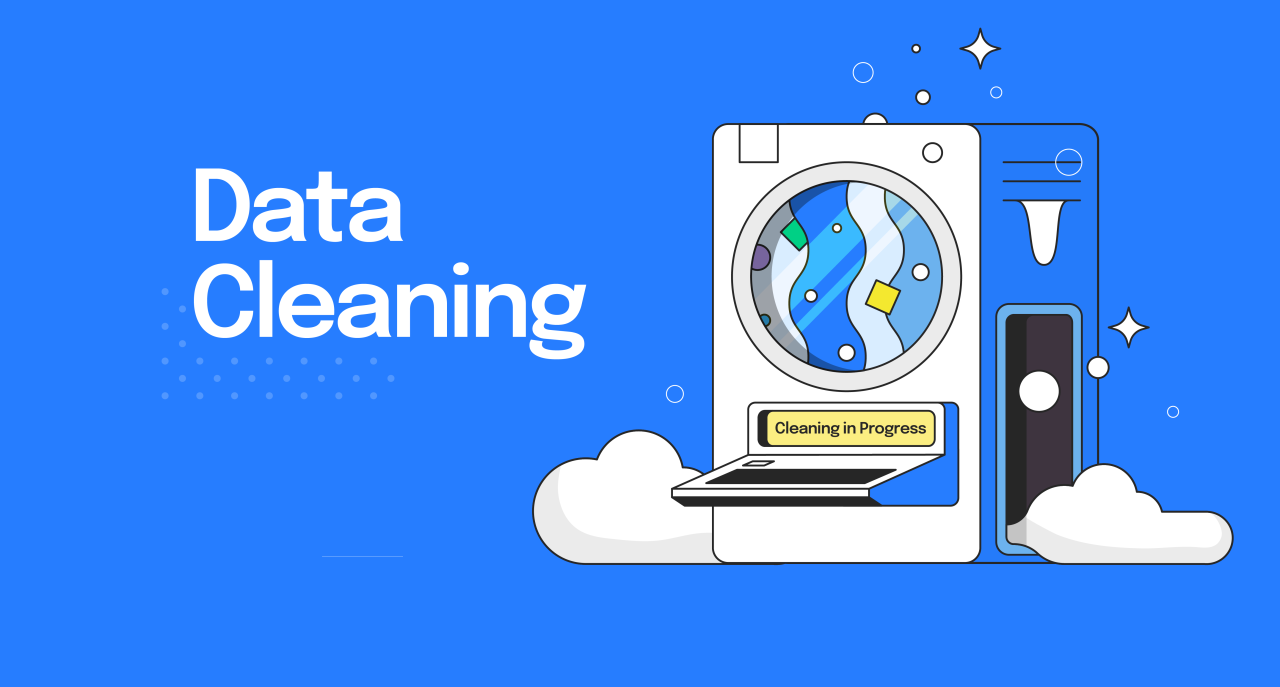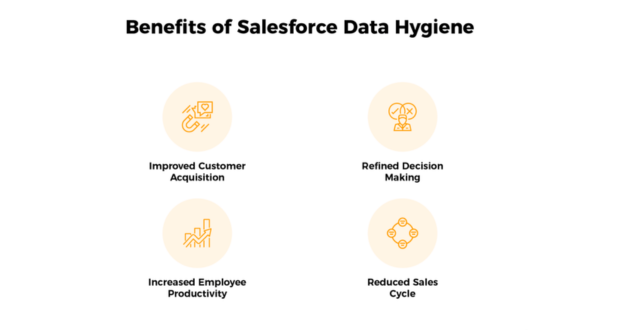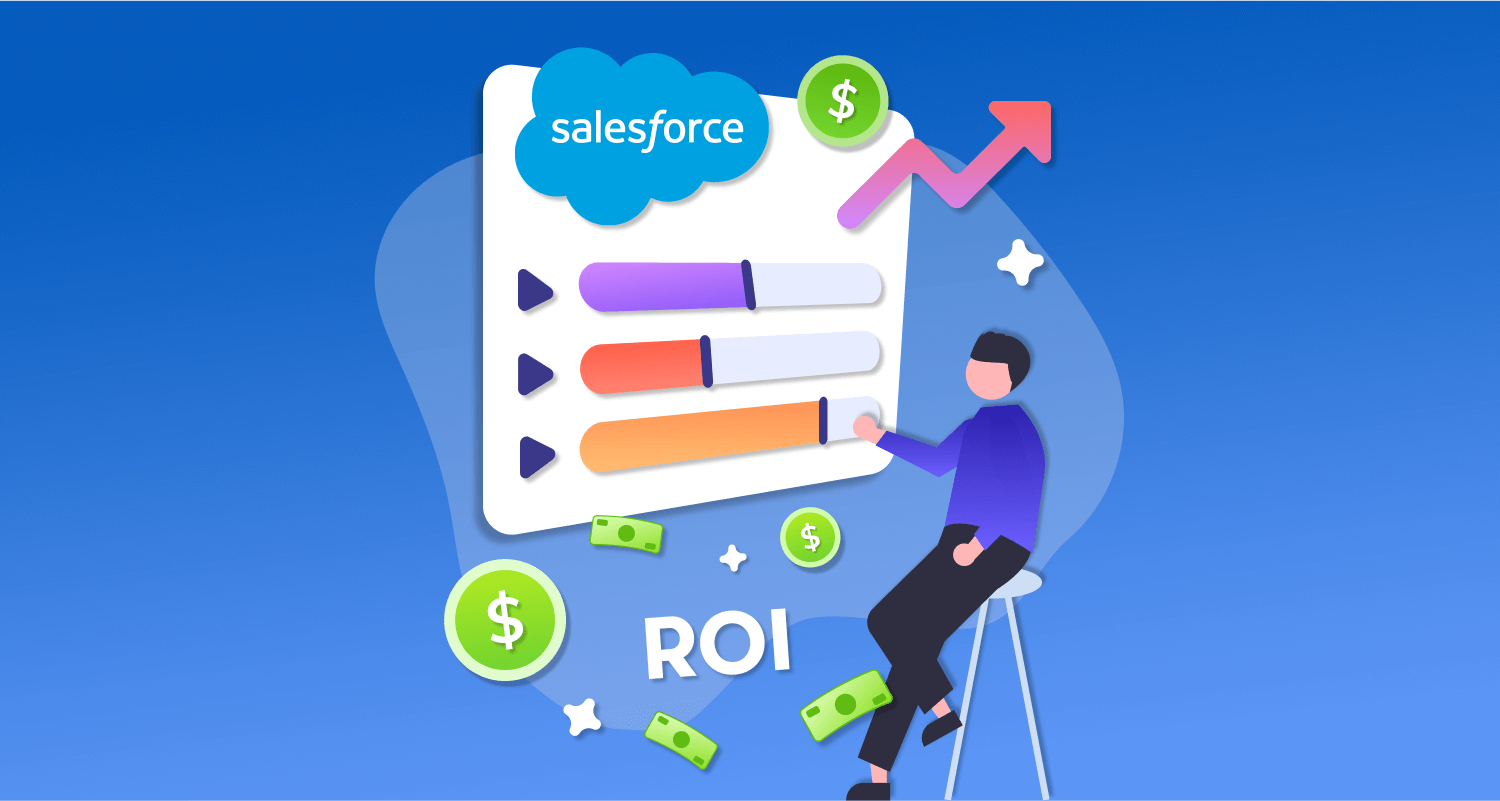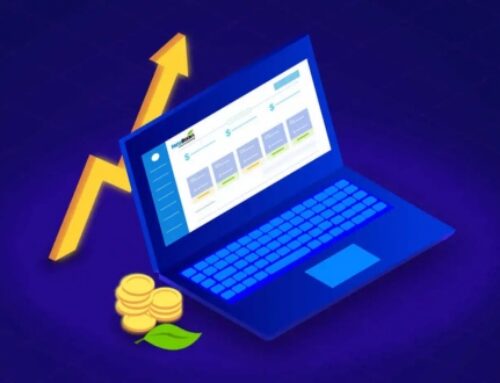Introduction
Overview of Salesforce CRM
Salesforce Customer Relationship Management (CRM) is a cloud-based platform designed to help businesses manage and streamline their customer interactions and relationships. It provides a comprehensive suite of tools and features that enable organizations to track leads, manage sales, automate marketing processes, and provide excellent customer service. Salesforce CRM is renowned for its flexibility, scalability, and user-friendly interface, making it a popular choice for businesses of all sizes and industries.
Importance of Clean Data in Salesforce
Clean and accurate data is fundamental for the effective functioning of any CRM system, and Salesforce is no exception. Clean data refers to information that is free from errors, inconsistencies, and duplications. The importance of clean data in Salesforce CRM cannot be overstated. It directly impacts the efficiency and reliability of various business processes, such as sales forecasting, marketing analytics, and customer support. Clean data ensures that the information stored in Salesforce is trustworthy, leading to better decision-making and improved overall business performance.
Challenges of Data Quality in CRM
Despite the significance of clean data, maintaining data quality poses several challenges within the context of CRM systems. Challenges may include data entry errors, duplicate records, outdated information, and incomplete data. Additionally, as organizations accumulate vast amounts of data, ensuring its accuracy and consistency becomes increasingly complex. Data quality issues can result in misguided business strategies, wasted resources, and a compromised customer experience. Addressing these challenges is crucial for organizations seeking to maximize the benefits of their Salesforce CRM implementation.
This introduction sets the stage for a more in-depth exploration of Salesforce CRM, emphasizing the critical role of clean data in its success and highlighting the challenges organizations face in maintaining data quality within their CRM systems. The subsequent sections of your document could further explore solutions, best practices, and strategies for overcoming these challenges and optimizing the use of Salesforce CRM.
Understanding Data Cleanup Services in Salesforce
What are Salesforce CRM Data Cleanup Services?
Salesforce CRM Data Cleanup Services refer to the processes and activities aimed at improving the quality and integrity of data within the Salesforce Customer Relationship Management (CRM) platform. Data cleanup involves identifying and rectifying inaccuracies, inconsistencies, and redundancies present in the data stored in Salesforce. This ensures that the information available in the CRM system is accurate, up-to-date, and reliable.
These services may include tasks such as deduplication, normalization, validation, and enrichment of data. Deduplication involves identifying and merging duplicate records, while normalization ensures that data is stored in a consistent format. Validation processes help maintain data accuracy by ensuring that only valid and properly formatted data is entered into the system. Additionally, data cleanup services may involve enriching existing data with additional information to enhance its overall quality and usefulness.
Key Objectives of Data Cleanup Services
- Data Accuracy:
Ensuring that the data within Salesforce is accurate by identifying and rectifying errors, inaccuracies, and inconsistencies.
- Data Consistency:
Maintaining a uniform and consistent format for data across all records, preventing variations that can lead to confusion or misinterpretation.
- Record Deduplication:
Identifying and merging duplicate records to eliminate redundancy and ensure a single, reliable source of truth for each entity.
- Improved Data Quality:
Enhancing the overall quality of data by validating and enriching information, making it more valuable for decision-making and business processes.
- Compliance:
Ensuring that the data stored in Salesforce complies with regulatory requirements and industry standards.
- Enhanced User Experience:
Providing a clean and organized data environment for users, facilitating easier navigation and use of the CRM system.
Why Data Cleanup is Critical for Business Success
- Informed Decision-Making:
Accurate and reliable data is essential for making informed business decisions. Clean data ensures that decisions are based on trustworthy information.
- Operational Efficiency:
Clean data streamlines business operations by reducing errors, minimizing manual interventions, and optimizing processes that rely on accurate information.
- Customer Satisfaction:
Reliable data leads to a better understanding of customers, enabling personalized interactions and improving overall customer satisfaction.
- Cost Reduction:
Data cleanup helps in avoiding the costs associated with errors, rework, and inefficiencies that result from inaccurate or duplicate data.
- Regulatory Compliance:
Clean data ensures that the organization complies with data protection and privacy regulations, avoiding legal issues and penalties.
- Long-Term Success:
Maintaining data quality is crucial for the long-term success and sustainability of a business, as it forms the foundation for various strategic initiatives and growth.
Common Data Quality Issues in Salesforce CRM
Duplicate Records:
Description: Duplicate records refer to instances where the same information is stored multiple times in the CRM system. This can happen due to data imports, manual entry errors, or system integration issues.
Impact: Duplicate records can lead to confusion, miscommunication, and skewed analytics. It affects the accuracy of reporting and can result in wasted resources and time spent managing redundant data.
Solution: Implementing deduplication tools and conducting regular data audits can help identify and merge duplicate records. Establishing validation rules during data entry can also prevent the creation of duplicate records.
Incomplete or Inaccurate Data:
Description: Incomplete data refers to missing information in CRM records, while inaccurate data implies the presence of incorrect details. This can occur during data entry, integration, or due to changes in business processes.
Impact: Incomplete or inaccurate data undermines the reliability of CRM reports and analytics, impacting decision-making processes. It can lead to unsuccessful marketing campaigns, poor customer service, and loss of business opportunities.
Solution: Implement data validation rules to enforce data completeness and accuracy during entry. Regularly review and update records, and consider implementing data quality tools to identify and correct incomplete or inaccurate information.
Outdated Information:
Description: Outdated information refers to data that is no longer relevant or accurate due to changes in customer details, company information, or other dynamic factors. This can happen if the CRM is not regularly updated.
Impact: Outdated information can lead to ineffective communication, failed marketing efforts, and missed sales opportunities. It can harm customer relationships and damage the credibility of the CRM system.
Solution: Establish processes for regular data updates, automate data refreshes where possible, and use data validation rules to flag outdated information. Implementing integration with other systems can also ensure that information remains current.
Lack of Standardization:
Description: Lack of standardization refers to inconsistent formats, structures, or values used for similar types of data across different records. For example, variations in naming conventions or address formats.
Impact: Standardization issues make it difficult to analyze and report on data accurately. It hinders the effectiveness of search functionalities and may lead to errors in data interpretation.
Solution: Enforce data standardization through validation rules, use picklists and predefined values, and provide training to users on consistent data entry practices. Regularly review and clean up existing data to ensure standardization is maintained.
Strategies for Salesforce CRM Data Cleanup
Data Auditing and Profiling:
Data auditing involves a systematic examination and evaluation of data to ensure its accuracy and completeness. Profiling involves analyzing the data to understand its structure, quality, and relationships. Auditing and profiling help identify discrepancies, errors, and inconsistencies in the Salesforce CRM data. This step is essential for gaining insights into the overall health of the data and determining areas that require attention.
Deduplication Techniques:
Deduplication involves identifying and eliminating duplicate records within the Salesforce CRM system. Duplicate data can lead to confusion, errors, and inefficiencies. Deduplication techniques may include fuzzy matching algorithms, exact matching, and automated processes to merge or eliminate duplicate records. This ensures that the CRM system maintains a single, accurate view of each customer or entity.
Standardization and Normalization:
Standardization involves ensuring that data follows a consistent format, making it easier to manage and analyze. Normalization involves organizing data to reduce redundancy and improve efficiency. Implementing standardization and normalization processes helps maintain data consistency across the Salesforce CRM system, making it easier for users to input and retrieve information accurately.
Data Enrichment:
Data enrichment involves enhancing existing data with additional information from external sources. This could include updating contact details, appending industry information, or enriching customer profiles with additional data points. Data enrichment ensures that Salesforce CRM data remains up-to-date and provides a more comprehensive view of customers, leading to better decision-making and personalized interactions.
Regular Data Maintenance Practices:
Regular data maintenance involves establishing routine procedures to keep the Salesforce CRM system clean and reliable over time. This includes periodic audits, deduplication efforts, and ongoing data quality monitoring. Establishing a schedule for routine maintenance practices helps prevent the accumulation of errors and ensures that the CRM system consistently delivers accurate and valuable information.
Salesforce CRM Data Cleanup Services: Features and Benefits
Automated Data Cleansing:
Automated Data Cleansing is a crucial aspect of Salesforce CRM Data Cleanup Services. This feature involves the use of automated algorithms and processes to identify and rectify inaccuracies, inconsistencies, and redundancies within the CRM data. It ensures that your data is accurate, up-to-date, and reliable. Automation not only saves time but also minimizes the risk of human errors associated with manual data-cleaning processes.
Real-time Data Monitoring:
Real-time Data Monitoring is a feature that allows businesses to keep a constant eye on the health and quality of their CRM data. It provides instant alerts and notifications for any anomalies, errors, or suspicious activities within the data. This proactive monitoring ensures that issues are identified and addressed promptly, maintaining the integrity of the data and preventing potential problems from escalating.
Integration with Third-party Tools:
The ability to integrate with third-party tools is a significant advantage of Salesforce CRM Data Cleanup Services. This feature allows seamless connectivity with external applications and tools that may complement the data cleanup process. For example, integration with data enrichment services, validation tools, or data governance solutions can enhance the overall effectiveness of the cleanup efforts.
Customization and Scalability:
Customization and scalability are essential features for adapting the data cleanup services to the specific needs of your organization. The ability to tailor the cleanup process to match unique data requirements and business rules ensures that the CRM system aligns perfectly with your workflow. Scalability is crucial as it allows the system to handle an increasing volume of data as your business grows without compromising performance.
Reporting and Analytics:
Reporting and Analytics features provide insights into the effectiveness of the data cleanup efforts. Businesses can generate comprehensive reports and analyze key metrics related to data quality, compliance, and overall CRM performance. These insights help in making informed decisions, identifying patterns, and continuously improving the data quality over time.
Salesforce CRM Data Cleanup Services offer a comprehensive set of features to maintain and enhance the quality of CRM data. From automated cleansing and real-time monitoring to integration capabilities and customizable scalability, these services are designed to optimize data accuracy, reliability, and overall CRM system performance. The inclusion of reporting and analytics ensures that businesses have the tools needed to monitor and improve data quality continuously.
Selecting the Right Data Cleanup Service Provider
Criteria for Evaluating Data Cleanup Services:
Data Security and Compliance: Ensure the provider adheres to data security standards and compliances relevant to your industry.
Data Accuracy and Completeness: Evaluate the provider’s methods for ensuring accurate and complete data cleanup, including validation and verification processes.
Customization and Flexibility: Assess the provider’s ability to tailor their services to meet specific data cleanup requirements of your organization.
Scalability: Consider whether the service can scale to handle increasing volumes of data as your organization grows.
Cost and Pricing Structure: Understand the pricing model, including any hidden costs, to determine the overall affordability and value for money.
Turnaround Time: Evaluate the time it takes for the provider to perform data cleanup activities, ensuring it aligns with your organization’s timelines.
Customer Support and Service Level Agreements (SLAs): Assess the level of customer support provided and the terms outlined in SLAs to guarantee timely and efficient assistance when needed.
Case Studies and Success Stories:
This part of the document likely includes real-world examples or case studies showcasing instances where organizations have successfully utilized data cleanup services. These stories provide practical insights into how the service provider addressed specific challenges and delivered positive outcomes for their clients. Case studies can help potential users understand the practical applications and benefits of the data cleanup services offered.
User Reviews and Testimonials:
This section features feedback from actual users of the data cleanup services, offering valuable insights into the user experience. User reviews and testimonials can provide a glimpse into the strengths and weaknesses of the service provider, helping potential customers make informed decisions. Positive testimonials and high ratings from satisfied clients can instill confidence in the service provider’s capabilities.
Measuring the ROI of Salesforce CRM Data Cleanup Services
Key Performance Indicators (KPIs):
- Data Accuracy:
Measure the accuracy of data after the cleanup process. This involves ensuring that information within Salesforce CRM is correct, up-to-date, and free from errors or duplications.
- Data Completeness:
Evaluate the completeness of data records. Check if all necessary fields are filled, and there is no missing or incomplete information.
- User Adoption:
Assess how well the users are adapting to the cleaned-up data. Higher user adoption indicates that the data is more user-friendly and serves its intended purpose effectively.
- Time Efficiency:
Measure the time saved by users and administrators in accessing, updating, and managing data. This can be quantified in terms of reduced data entry time or faster retrieval of information.
- Customer Satisfaction:
Gather feedback from users and customers to assess their satisfaction with the improved data quality. This could involve surveys or direct communication to understand the impact on customer interactions.
Long-term Impact on Business Operations:
- Improved Decision-Making:
Evaluate how the cleaned-up data contributes to better decision-making processes within the organization. This could involve looking at instances where accurate data led to strategic decisions.
- Enhanced Productivity:
Measure the impact on overall productivity, both in terms of data management and other business operations. This could include a reduction in time spent on troubleshooting data issues or handling customer complaints related to inaccurate information.
- Increased Sales and Revenue:
Assess whether the cleanup has positively affected sales and revenue generation. Improved data quality often leads to better-targeted marketing and sales efforts, resulting in increased conversion rates.
- Regulatory Compliance:
Evaluate if the cleanup has ensured compliance with data protection and privacy regulations. This is crucial for avoiding legal issues and maintaining the trust of customers.
Cost-Benefit Analysis:
- Cost of Cleanup Services:
Calculate the expenses incurred in availing Salesforce CRM data cleanup services. This includes any fees paid to service providers, costs associated with downtime during the cleanup, and other related expenditures.
- Cost Savings:
Identify areas where the cleanup has led to cost savings. For instance, reduced errors may result in fewer customer service inquiries, leading to savings in support costs.
- Return on Investment (ROI):
Evaluate the overall return on investment by comparing the benefits (improved data quality, increased productivity, etc.) against the costs incurred for the cleanup services. This is a critical metric for assessing the financial impact of the cleanup effort.
- Future Maintenance Costs:
Consider the potential ongoing costs associated with maintaining data quality. This includes periodic checks, staff training, and any tools or services required to sustain the improved data quality over time.
Challenges and Limitations of Salesforce CRM Data Cleanup Services
Integration Challenges:
Integration challenges arise when attempting to synchronize data between Salesforce CRM and other systems or applications. This can be especially complex if the existing data structure or format in Salesforce differs significantly from the systems being integrated. Issues may include data inconsistency, duplication, or loss during the integration process. It is crucial to ensure that data mapping and transformation are handled effectively to maintain data integrity across all integrated platforms.
User Adoption Issues:
User adoption is a common challenge when implementing data cleanup services in Salesforce. Users may resist changes to their familiar workflows, and there might be a lack of enthusiasm for adapting to new data management processes. Proper training, communication, and support are essential to overcome user adoption issues. Additionally, the introduction of new data cleanup policies should align with user needs and enhance their overall experience rather than disrupt it.
Cost Considerations:
Data cleanup services, especially within a robust CRM system like Salesforce, often come with associated costs. These costs may include software licenses, hiring specialized personnel, training, and potential expenses related to data migration and integration. Organizations need to carefully evaluate the return on investment (ROI) and consider the long-term benefits of clean and accurate data in terms of improved productivity, customer satisfaction, and business intelligence.
Data Privacy and Security Concerns:
Data privacy and security are critical considerations in any data cleanup initiative. The process involves accessing and manipulating sensitive information, and mishandling it can lead to breaches or leaks. Organizations need to ensure that data cleanup services comply with relevant data protection regulations and implement robust security measures. This includes encryption, access controls, and regular audits to identify and mitigate potential risks to the confidentiality and integrity of the data.
Addressing challenges and limitations in Salesforce CRM Data Cleanup Services requires a comprehensive strategy that encompasses technical considerations, user engagement, financial planning, and a strong commitment to data privacy and security. Successful implementation involves a careful balance of these factors to ensure the effective cleanup and maintenance of valuable CRM data.
Data Cleanup is crucial in Salesforce CRM to ensure the accuracy and reliability of the data. Clean data improves decision-making, enhances user productivity, and increases the overall efficiency of business processes. It also helps in maintaining a positive customer experience.
Common issues include duplicate records, incomplete or inaccurate data, outdated information, inconsistent formatting, and data integrity issues. Data Cleanup services focus on resolving these issues to ensure a reliable and up-to-date database.
Duplicate records can be identified using tools and features within Salesforce, such as the Duplicate Management feature. External tools and third-party apps can also be employed to perform a more comprehensive analysis and identification of duplicate records.
Various tools and techniques are available, including Salesforce’s native Duplicate Management feature, data validation rules, workflows, and third-party data cleaning apps. Additionally, manual review and correction may be necessary for certain cases.
Yes, Data Cleanup can be automated to a certain extent using features like Duplicate Management rules, workflow rules, and Process Builder. However, some cleanup tasks may require manual intervention, especially for critical data.

